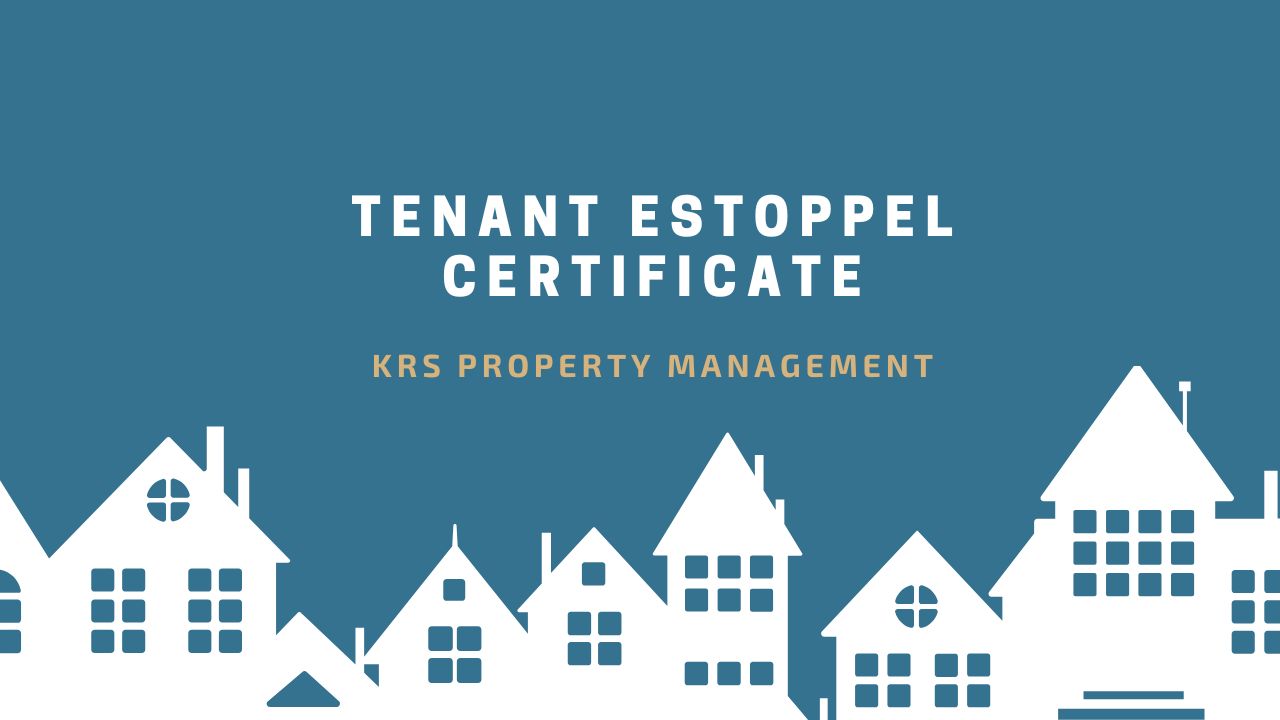
As a landlord, you may come across a legally binding document known as an Estoppel Certificate. Understanding what it is, why it's used, and how it benefits both landlords and tenants can be essential for smooth buyer transactions and clear communication.
A Tenant Estoppel Certificate
An Estoppel Certificate is a signed statement from the tenant that verifies the current terms and status of a lease or rental agreement. It serves as a formal declaration of specific details in the lease, such as rent amount, lease duration, and any agreed-upon modifications.
For instance, imagine your a landlord who recently purchased a rental with residential tenants already occupying the units. The previous landlord may have provided you with lease details, but without an estoppel agreement, you have no guarantee that the tenant agrees with or confirm those details.
The certificate acts as a safeguard for all parties, memorializing the terms of the lease and protecting against misunderstandings.
Why is a Tenant Estoppel Certificate Important?
An estoppel agreement holds value for several reasons:
Prevents Discrepancies: It serves as a tool to avoid issues when tenants and landlords might have conflicting information about lease terms. For example, if a landlord believes the monthly rent is $2,000 and the tenant claims it's $1,800, the estoppel certificate will clarify the exact agreed-upon amount.
Required by Lenders: When the unit sales or refinancing transactions involve tenant-occupied properties, lenders often require estoppel certificates. Lenders want to confirm that the terms of lease are as stated by the rental owner, ensuring no hidden liabilities could affect the loan.
Helps Prevent Fraud: By requiring a tenant to confirm that the lease exists, and its terms, the estoppel certificate can prevent fraudulent changes or misleading information from being presented in rental transactions.
Maintains Transparency in Transactions: When buying or selling rental properties, an estoppel certificate provides transparency for all parties, building trust between the new owner, existing tenants, and any third parties involved.
What Information Does an Estoppel Certificate Include?
An Estoppel Certificate generally includes the following information:
Rent Amount: The monthly rent paid by the tenant, including any agreed-upon increases.
Security Deposit: The amount held by the landlord as a security deposit.
Lease Dates: The lease start date, end date, and any renewal or extension terms.
Lease Modifications: Any changes or amendments made to the lease after the initial agreement with landlords.
Other Financial Obligations: This could include late fees, utility payment responsibilities, and association dues if applicable.
Unit Details: Information about parking spaces, storage units, or other amenities tied to the rental agreement.
Delinquencies or Evictions: Any current or past issues with rent payments or eviction notices.
By detailing these items, the certificate provides a comprehensive overview of the tenant's responsibilities and rights under the lease.
How is a Tenant Estoppel Certificate Used in Real Estate Transactions?
In real estate, estoppel agreements are typically used in these scenarios:
Sale of a Rental: When selling a tenant-occupied unit, the seller or the buyer may request an Estoppel Certificate. This ensures that the new landlord knows exactly what they are inheriting in terms of lease obligations and tenant expectations, via the lease.
Refinancing: Lenders often require an Estoppel Certificate during refinancing to ensure no terms would negatively impact the investment's value or the owner's ability to meet loan obligations.
Portfolio Management: In cases where properties are part of larger investment portfolios, estoppel agreements provide clear documentation of each lease, simplifying management and ensuring accuracy across multiple properties.
What Happens If a Tenant Refuses to Sign the Estoppel Certificate?
Occasionally, a tenant may be hesitant to sign an estoppel agreement with the landlord. In this situation, unit owners have options to encourage compliance:
Reference the Lease Agreement: Most lease agreements, especially those provided by associations like the California Association of Realtors (C.A.R.), include a clause requiring the tenant to comply with estoppel requests. Reminding the tenant of this obligation can clarify that signing the certificate is part of their lease terms.
Open Communication: Landlords should approach their tenant with a polite and straightforward explanation of why the estoppel agreementis necessary. Many tenants may simply be unfamiliar with the document's purpose, so explaining how it protects their interests can encourage them to sign.
Rely on the Lease Terms: If the tenant still refuses to sign, the terms of lease can usually support the information in the estoppel agreement, especially if a compliance clause is present. This approach is generally valid only if the lease is legally robust and the terms are undisputed.
Tips for Rental Property Owners on Using Estoppel Certificates
Here are some great tips:
Include a Clause in the Lease Agreement: When drafting or updating lease agreements, landlords should include a clause that requires tenants to complete estoppel certificates upon request.
Be Transparent and Informative: When asking tenants to sign an estoppel certificate, explain the reasons for it and how it benefits both the landlord and the tenant.
Seek Legal Advice: If there are questions about the accuracy of the estoppel certificate or disputes arise, consulting a real estate attorney can be beneficial.
Maintain Organized Records: Proper record-keeping of all estoppel certificates can be invaluable in future transactions, ensuring a clear history of tenant interactions and relationships with the landlord, aswell as lease details.
Bottom Line
An Estoppel Certificates are a crucial tool for rental owners, especially those who frequently buy, sell, or refinance tenant-occupied units. By ensuring that lease details are clear and agreed upon, these certificates protect owners from potential misunderstandings or legal issues.
Estoppel Certificates also contribute to a smoother transaction process, fostering transparency and building a trustworthy relationship with tenants.
If you have any questions contact KRS Holdings Today!






